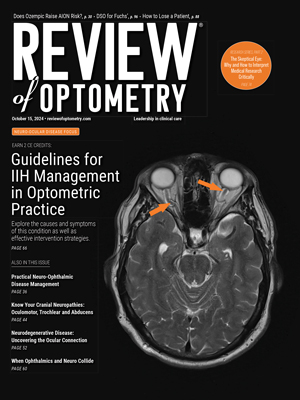Florida ophthalmologist Steven Maskin, MD, has developed a meibomian gland probing technique to assess obstructed glands that have been refractory to traditional treatments. A new study by Dr. Maskin, who has a commercial interest in devices used for this procedure, looks at its role in care and ways to improve the technology. The study finds that targeting fixed, unyielding resistance and restoring intraductal integrity will prevent progressive gland atrophy of nearby tissue. More evident, expressible glands that are seemingly healthy were just as likely to have occult obstruction as non-expressible glands.
The study quantified probe findings of nearly 12,000 glands of 404 eyelids over a 34-month span. Of the glands, 84% showed mechanical resistance and 16% showed no resistance. Fixed, firm, focal unyielding resistance occurred in 79.5% of obstructed glands, and nonfixed, nonfocal easily yielding soft resistance in 20.4%. Researchers found no significant difference in mechanical resistance and fixed, unyielding resistance for lids between 0% and greater than 90% gland expressibility. Upper lids showed greater incidence of both mechanical resistance and fixed, unyielding resistance. Soft resistance correlated with reduced expressibility, which researchers attributed to altered duct or duct contents.
These findings led researchers to believe that interventions to force meibum through fixed obstructions using pressure and heat could further elevate intraductal pressures and further exacerbate inflammatory meibomian gland disease (MGD) and dry eye. They also suggest that meibomian gland probing early—before progression to whole-gland atrophy—could be beneficial because glands with expressible and non-expressible obstructive MGD have already developed fixed, unyielding resistance. The study concludes that meibomian gland probing could enable the use of complementary procedures and therapies to provide optimal treatment of obstructive MGD.
| Maskin SL, Alluri S. Expressible meibomian glands have occult fixed obstructions: findings from meibomian gland probing to restore intraductal integrity. Cornea. April 16, 2019. [Epub ahead of print]. |

